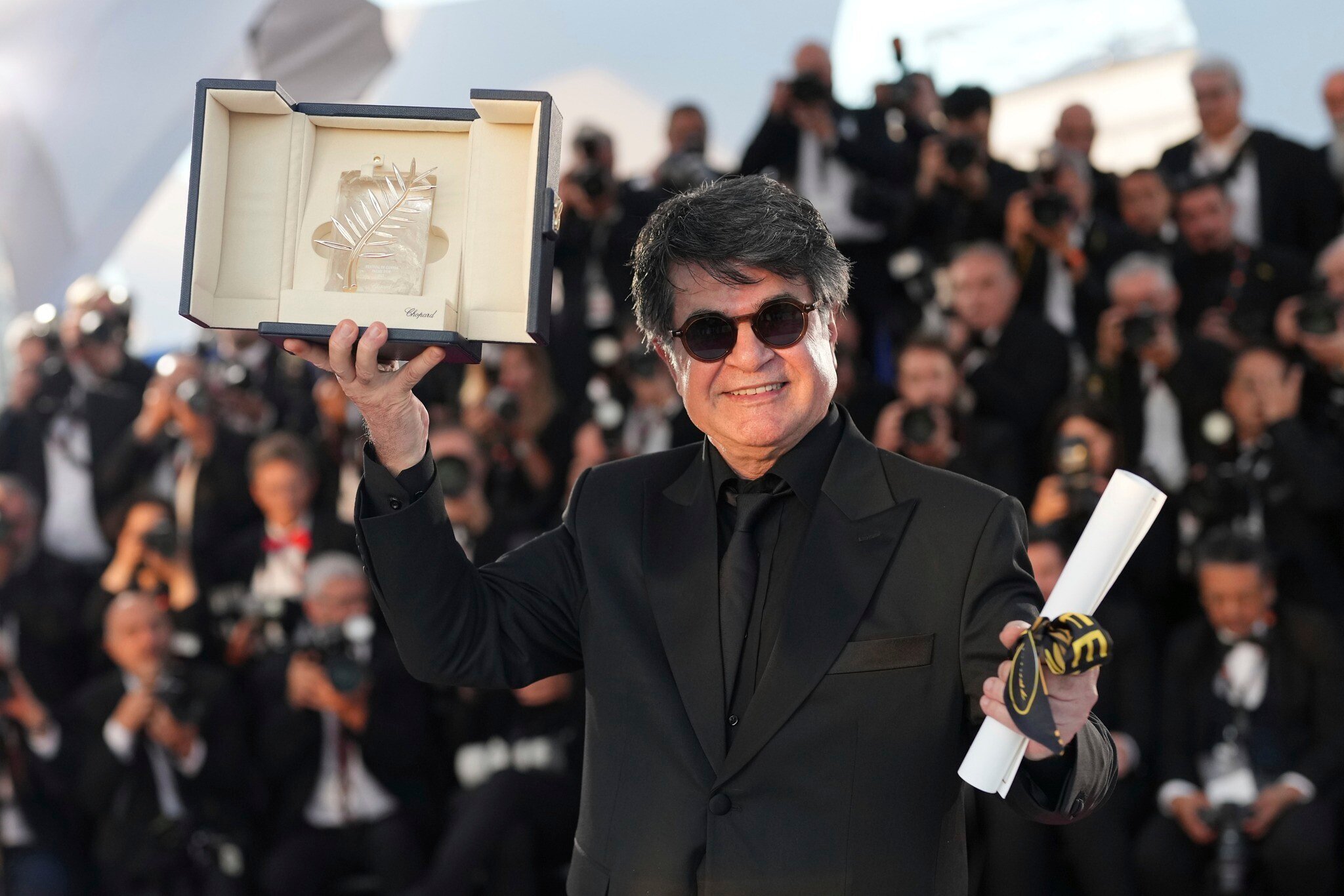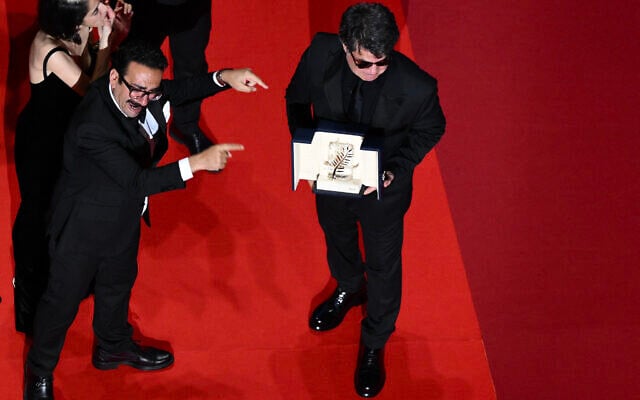



Dissident Iranian director Jafar Panahi urged Iranians to put their differences aside and work for “freedom” as he accepted an award for best film at the Cannes Film Festival on Saturday.
“I believe this is the moment to call on all people, all Iranians, with all their differing opinions, wherever they are in the world — in Iran or abroad — to allow me to ask for one thing,” Panahi said, according to remarks in Persian which were translated into French at the ceremony.
“Let’s set aside all problems, all differences. What matters most right now is our country and the freedom of our country,” he told the VIP-studded audience on the French Riviera.
His film “It Was Just an Accident” tells the tale of five ordinary Iranians confronted with a man they believed tortured them in jail.
The 64-year-old director, who last attended the festival in person in 2003, dedicated his prize to all Iranians, saying that cinema must be a space for free expression.
“Hoping that we will reach a day when no one will tell us what to wear or not wear, what to do or not do,” he said, in an apparent reference to Iran’s strict Islamic dress code for women.
The core of the provocative and wry drama examines the moral dilemma faced by people if they are given an opportunity to take revenge on their oppressors.
The head of the Cannes 2025 jury, French actress Juliette Binoche, paid tribute to “It Was Just an Accident.”
“This is a film that emerges from a place of resistance, a place of survival, and it felt essential to bring it put it on top today,” she told reporters afterwards.
Iran’s state IRNA news agency hailed Panahi’s award, which is the second for an Iranian director.
“The world’s largest film festival made history for Iranian cinema,” it reported, recalling the first win in 1997 by Abbas Kiarostami, who was also banned and jailed.
Panahi, who was banned from making films in 2010 and has been imprisoned twice, was in Cannes for the first time in 15 years, having seen a travel ban lifted on him in 2023.
The leading light in the Iranian New Wave cinema movement has vowed to return to Tehran after the Cannes Festival, despite the risks of prosecution.
When asked on Saturday evening if he was worried about flying home, he replied: “Not at all. Tomorrow we are leaving.”
With the award, Panahi now has the rare honor of winning the top prize at all three major European film festivals, after nabbing Berlin’s Golden Bear for “Taxi” in 2015 and the Golden Lion at Venice for “The Circle” in 2000.
He showcased his debut film “The White Balloon” in Cannes in 1995, which won an award for best first feature.
Panahi has always refused to stop making films, and his efforts to smuggle them out to foreign distributors and film festivals have become the stuff of legend.
A year after being handed a 20-year ban on filmmaking in 2010, he dispatched a documentary with the cheeky title “This is Not a Film” to the Cannes Festival on a flash drive stashed in a cake.
“Cannes is a bigger stage and has its own qualities, but what I truly want is to sit in a cinema with ordinary people in Iran and watch this film. That’s the most important thing,” Panahi told AFP this week.
Iran was shaken by the “Women, Life, Freedom” protests in 2022, sparked by the death in custody of 22-year-old Mahsa Amini after she was arrested for allegedly flouting dress rules for women.
The demonstrations were quashed in a crackdown that saw thousands detained, according to the United Nations, and hundreds shot dead by security forces, according to activists.

